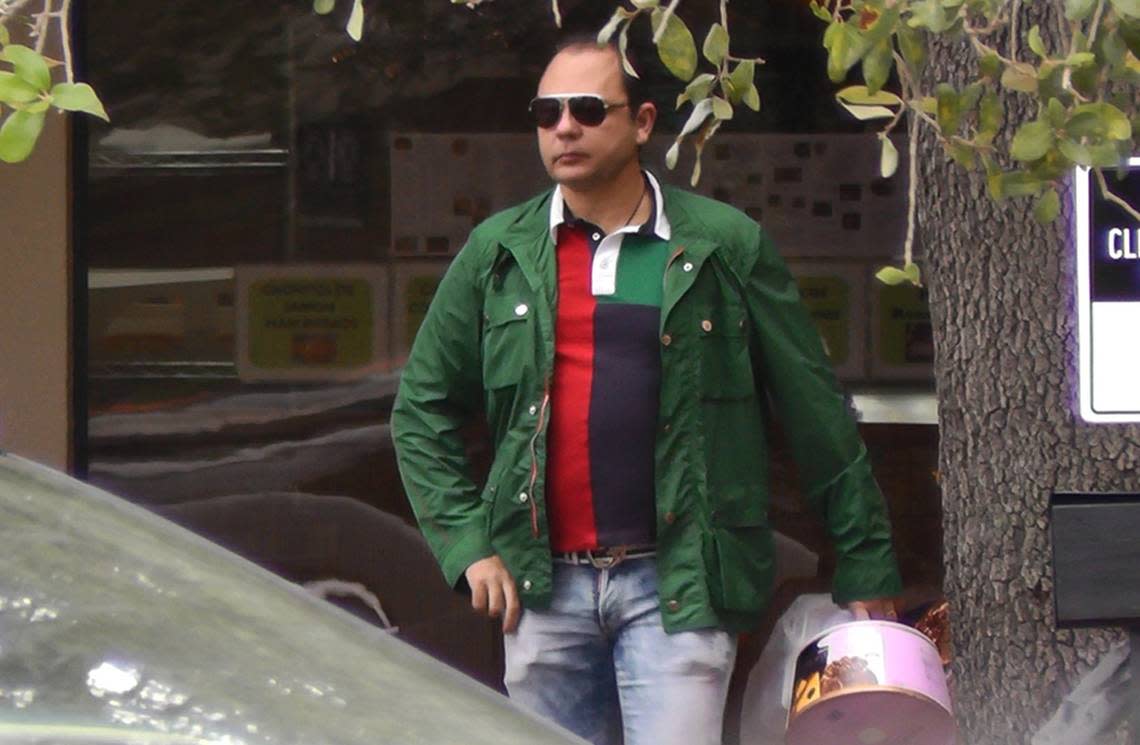Miami federal judge rules in favor of close ally to Venezuelan strongman Nicolas Maduro

- Oops!Something went wrong.Please try again later.
In a legal victory for businessman Raul Gorrín, a close ally to Venezuelan strongman Nicolás Maduro, a judge in the Southern District of Florida ruled that two Miami luxury properties belonging to him could not be seized as compensation by the family of a Colombian guerrilla kidnapping victim.
The ruling issued on Monday by U.S. District Judge Kevin Michael Moore protects a $34 million Fisher Island mansion and a $14.3 million Collins Avenue property from the efforts of Antonio Caballero to collect on a $140 million, plus interest, settlement awarded for the death of his father at the hands of the Fuerzas Armadas Revolucionarias de Colombia (FARC) two decades ago.
Caballero had claimed that Gorrín and his brother-in-law and business partner, Gustavo Perdomo, had been laundering money for the FARC.
Gorrín belongs to a small number of Venezuelan businessmen suspected by U.S. officials of earning billions of dollars through their close ties to Maduro and other top dignitaries of the Caracas Socialist regime.
Sanctioned by the Department of Treasury’s Office of Foreign Assets Control (OFAC), Gorrín, the main owner of Venezuelan TV network Globovision was charged in a South Florida federal court for his alleged role in a billion dollar corruption and money laundering scheme in Venezuela and is considered a fugitive by U.S. officials.
While Caballero alleged that Gorrin provided assistance to the FARC, Moore said in his ruling that the plaintiff failed to provide evidence supporting that claim.
The judge found that there “were no facts” suggesting that Gorrín and Perdomo laundered money for Maduro or for the benefit of the FARC, Gorrin’s lawyers said.
“The Court rejected Caballero’s six-degrees-of-separation theory that threatened to label as a terrorist-agent anyone who ever did business with Venezuela,” lawyers Lisandra Guerrero and Howard Srebnick said in the press release.
According to the ruling, Caballero failed to offer evidence about the amount of financial support the FARC allegedly received — directly or indirectly — from Gorrín and Perdomo and also failed to demonstrate how the businessmen assisted the FARC.
“Instead of bolstering his statements with factual support, Plaintiff merely cites numerous pages in expert reports. Yet the expert reports are also full of conclusory statements with little to no factual basis,” the ruling says.
Caballero, who lives in the United States, has been struggling to collect the settlement awarded to him in 2014 for the death of his father in 1999 after he was kidnapped by the FARC.
Gorrín has been among a group of Venezuelan businessmen under investigation by U.S. authorities in Miami since 2016 for allegedly paying millions of dollars in bribes to senior government officials in Venezuela’s state oil company PDVSA and the national treasury in exchange for access to energy contracts and currency exchanges that produced massive profits.
He allegedly played a central role in a $1.2 billion corruption scheme involving loans in bolivars acquired by PDVSA from companies allegedly controlled by Venezuelan businessman Francisco Convit and that were repaid almost immediately by the oil company using the highly favorable and exclusive official exchange rate, which granted huge profits, according to the indictment in the case introduced by the U.S. Attorney for the Southern District of Florida.
But the main case against Gorrín involves accusations that he allegedly participated in a massive money-laundering racket to drain more than $1 billion from Venezuela’s government and launder the illicit money through U.S. banks and luxury real estate investments in New York and South Florida, according to court documents introduced in relation to this second case.
The money-laundering scheme was carried out during a period of extreme economic hardship for many Venezuelans, who have struggled to afford basic necessities such as housing and food under the socialist government.

